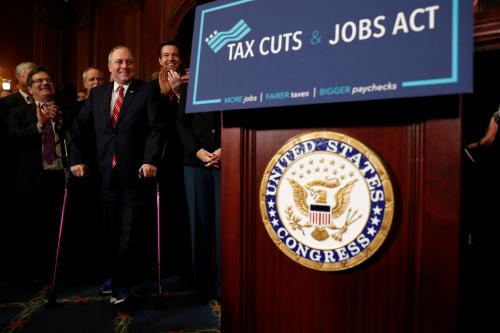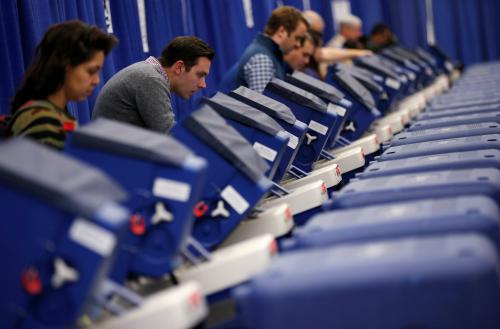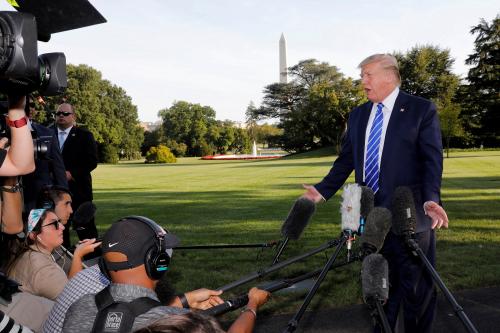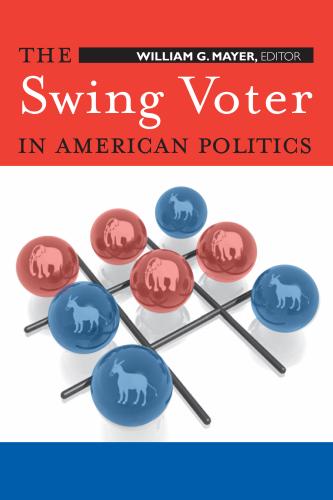Largely unnoticed alongside a seemingly unending stream of scandals and crises, Republicans have pushed forward a second round of tax cuts. The legislation has little chance of passing the Senate, and so is more a messaging maneuver than a serious attempt at reform. But if the tax bills that will be voted on in the House on Friday are intended to mobilize midterm voters, the plan is profoundly ill-conceived.
With additional tax cuts, Republicans are throwing good money after bad. An analysis of last year’s Tax Cuts and Jobs Act (TCJA) indicated that it would do little to help Republicans in the midterms. As the campaign season has unfolded, more and more evidence has helped to confirm this prediction. An internal GOP poll commissioned by the Republican National Committee and obtained by Bloomberg News this week found a significant number of voters believed President Trump’s tax overhauls benefitted “large corporations and rich Americans” over “middle class families.” (That is to say, most Americans were correct about the legislation’s impact.) The report’s conclusion was blunt: “we’ve lost the messaging battle on the issue.”
On the campaign trail, at least, Republicans seem to have recognized that the promise of “tax cuts” is not thrilling the voters like it used to be. Upcoming data by the Brookings Primaries Project shows the proportion of Republican candidates discussing federal tax policy has actually declined in 2018, compared to the previous two election cycles. Democrats, by contrast, are talking about federal tax policy more than usual. It’s not the data you would expect, if Republicans were confident in the appeal of their party’s signature legislative achievement.
Into this far-from-auspicious political environment, however, House Republicans have doubled down on tax reform. The rationale, perhaps, is to force Democrats to vote against tax cuts one more time before the midterm. But, particularly given the public’s reaction to the TCJA, there is no compelling reason to imagine this would be effective.
And the strategy could well backfire. The new tax legislation would make permanent the cap on the state and local tax (SALT) deduction passed as part of the TCJA. This provision raised taxes on people who pay both a lot of federal income tax and high state and local taxes—i.e., rich people in progressive states. So blue state Republicans, many of whom face serious challengers in November, will find themselves again forced to choose between the party and the interests of their wealthy constituents.
Some Democratic candidates are already taking advantage of the moment. In California’s 25th District, Katie Hill has welcomed a vote on the new legislation to exert pressure on her opponent, Rep. Steve McKnight. McKnight supported the TCJA last year and Hill believes a new messaging vote will either mark him as a hypocrite or serve as “a fresh reminder of whose side he’s on.” Elsewhere, Mikie Sherrill, the Democrat campaigning for an open seat in the 11th District of New Jersey, is highlighting taxation as a major campaign issue. Her opponent, Jay Webber, supports the tax cuts even after Rodney Frelinghuysen, the Republican who has held the seat since 1995, voted against the TCJA.
In the 1980s, perhaps, tax cuts were a near-guaranteed winner for elected officials. But nearly forty years later, the data confirm: voters are not interested. And yet the GOP continues to press on. Even with full control of Congress, the party has been unable to produce any other significant legislative accomplishment. The inability of the GOP to develop legislative priorities even superficially appealing to most voters is another worrying symptom of continued decline in government function.












Commentary
Tax cuts: The gift that keeps not giving
September 27, 2018